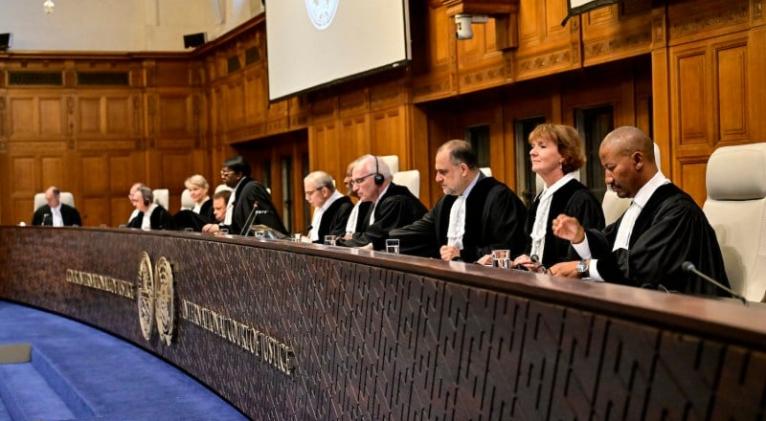International Court of Justice at The Hague orders Israel to immediately halt its military offensive on Rafah
especiales

Judges at the top United Nations court ordered Israel to halt its offensive in the southern Gaza city of Rafah and withdraw from the enclave, in a case brought by South Africa accusing Israel of genocide, citing “immense risk” to the Palestinian population.
Friday’s decision marked the third time this year the 15-judge panel has issued preliminary orders seeking to rein in the death toll and alleviate humanitarian suffering in Gaza. While orders are legally binding, the court has no police to enforce them.
Reading out a ruling by the International Court of Justice or World Court, the body’s president Nawaf Salam said provisional measures ordered by the court in March did not fully address the situation in the besieged Palestinian enclave now, and conditions had been met for a new emergency order.
Israel must “immediately halt its military offensive, and any other action in the Rafah Governorate, which may inflict on the Palestinian group in Gaza conditions of life that could bring about its physical destruction in whole or in part,” Salam said, and called the humanitarian situation in Rafah “disastrous”.
Reporting from The Hague, in the Netherlands, Al Jazeera’s Step Vaessen said that 13 of the 15 ICJ judges agreed that the situation in Rafah is a red line with words like ‘exceptionally dire’ being used by them to describe the situation.
“The main judge said 800,000 are displaced, and that he doesn’t believe Israel’s word that they are provided safety and humanitarian access. He said there was no evidence of that,” she noted.
“That’s why the court has now made a very strong order that Israel should immediately stop its offensive and military operation in Rafah and withdraw its troops from there. He also made a ruling on border crossings, that they must be reopened as soon as possible to get humanitarian aid in,” Vaessen added and said that the judge also stressed that observers from the UN have to get access as soon as possible to make sure that no evidence of any possible war crimes disappear from the region.
The ICJ has also ordered Israel to report back to the court within one month over its progress in applying measures ordered by the institution.
Israel launched its assault on the southern city of Rafah this month, forcing hundreds of thousands of Palestinians to flee a city that had become a refuge to about half of the population’s 2.3 million people.
Rafah, on Gaza’s southern edge, has also been the main route in for aid, and international organisations say the Israeli operation has cut off the enclave and raised the risk of famine.
Reporting from Deir Al Balah in central Gaza, Al Jazeera’s Hind Al Khoudary said that people in Gaza have not yet reacted to the ICJ ruling since many of them do not have internet connection. “People here in the Gaza Strip are currently trying to feed themselves…after being constantly displaced. So people are not very well aware of what’s going on. They’re asking journalists…if there is anything positive,” she said.
Khoudary added that as journalists in Gaza, they do not want to give people in the region false hope and are waiting to hear more information about how the ICJ’s ruling will be implemented in Rafah, where the situation remains intense.
South Africa’s lawyers asked the ICJ in the Hague last week to impose emergency measures, saying Israel’s attacks on Rafah must be stopped to ensure the survival of the Palestinian people.
In a highly-charged ruling in January, the court ordered Israel to do everything in its power to prevent genocidal acts in Gaza but stopped short of ordering a halt in the fighting.
Israel has repeatedly dismissed the case’s accusations of genocide as baseless, arguing in court that its operations in Gaza are self-defence and targeted at Hamas. An Israeli government spokesman said on the eve of Friday’s decision that “no power on Earth will stop Israel from protecting its citizens and going after Hamas in Gaza.”
The ICJ, also known as the World Court, is the highest UN body for hearing disputes between states. Its rulings are final and binding but have been ignored in the past. The court has no enforcement powers.













Add new comment